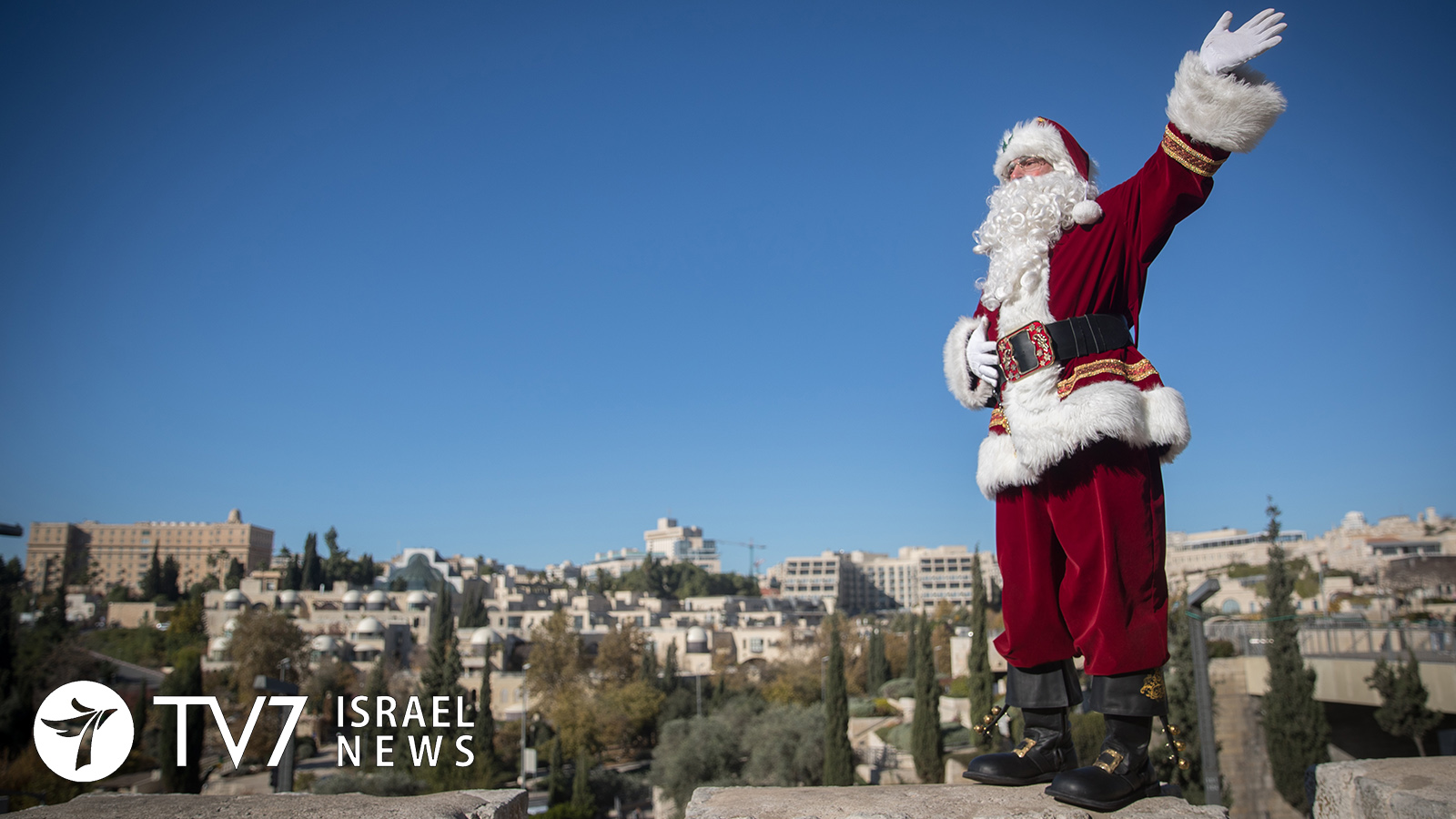Christmas cheer rang out as Christians celebrated this year’s festivities throughout the Holy Land.
In his annual videotaped Christmas greeting, Prime Minister Benjamin Netanyahu said “The State of Israel is the culmination of so many prophecies and our deepest held values.” He pointed out that, “We share the common civilization, the Judeo-Christian civilization, that has given the world the values of freedom, individual liberty, the sanctity of life and the belief in one God.”
After expressing pride in “our traditions,” Prime Minister Netanyahu emphasized that “We are proud of our Christian friends.”
He then underscored that “The State of Israel would not have come into being if it weren’t for the avid support of Christians in the 19th century, in the 20th century as well and in the 21st century.” Saying “We know that we have no better friends around the world than our Christian friends,” the Israeli leader thanked Christians around the world for “standing up with Israel, standing up for the truth,” wishing one and all a very Merry Christmas.
In related developments, Israel granted special permits to Christians living in the West Bank and Gaza to visit Jerusalem over the holiday.
In a press release to TV7, the Coordinator of Government Activities in the Territories (COGAT), Major General Kamil Abu Rukun, announced that following consultations with all the security services, there would be an “extension of the civil measures for the benefit of the Christian population of the Gaza Strip in recognition of the Christmas holiday.” In addition, he said that “as part of these measures, entry permits for Jerusalem and for the Judea and Samaria area will be issued in accordance with security assessments and without regard to age.”
The decision reflects a reversal of a policy announced nearly two weeks ago that would have barred the nearly 1,000 mostly Greek Orthodox Christians, who reside among among nearly 2 million Muslims in Gaza, from visiting holy cities of Jerusalem and Bethlehem over heightened security concerns. Following widespread protestation, COGAT agreed to issue a maximum of 500 permits to Gaza Christians to enter Israel, “in accordance with security checks.”
Israel’s defense establishment tightly restricts movements out of the Gaza Strip territory controlled by Hamas, an Islamist group that it considers a terrorist organization. Last year the country allowed 650 Gazan Christians to travel to Jerusalem, Bethlehem, Nazareth and other holy cities that draw thousands of pilgrims each holiday season. The Israeli government defends its security measures, both as a means to prevent Islamist-terrorism from targeting holiday celebrations as well as because many Palestinians from Gaza remained in the country illegally after the expiration of their short-term permits.
Jerusalem is home to sites holy to the Jewish, Muslim and Christian religions, the latter of whom revere the city as the site of Jesus’ crucifixion and resurrection. While it hosts tens of thousands of pilgrims each year, Jerusalem is also at the core of the Israeli-Palestinian dispute. Israel considers all of Jerusalem as its eternal and indivisible capital. Palestinians demand that the city’s eastern sector, conquered by Israel in the 1967 Six Day War, serve as the capital of a future state, along with the Gaza Strip and the Israeli-governed West Bank. The United States and a number of other nations have recognized Israeli sovereignty over the city, although much of the international community regards the final status of Jerusalem as an issue that should be resolved in an eventual Israeli-Palestinian peace process that has long been stalled.
Holiday festivities in Jerusalem included the lighting of the official Christmas tree in the Old City, attended by hundreds of people gathered in the narrowed walled streets to watch the event. As it does every year, the Jerusalem municipality also sponsored the free distribution of Christmas trees to Christians by a local resident dressed as Santa Claus and riding a camel to share both Christmas spirit and cheer.
Bethlehem is enjoying its busiest tourist year in two decades, with foreign pilgrims and worshippers arriving in flocks to take advantage of a relative lull in Israeli-Palestinian tension. Most come to worship at the 4th Century Church of the Nativity, which was built over a grotto where Jesus was born according to Christian tradition. Another main attraction is the 16-meter Christmas tree standing in Manger Square.
Children dressed as Santa Claus sang carols and rang bells during a Christmas-themed show at the College des Freres, located in the biblical city’s central market sparkling with decorations and wooden nativity scenes line the narrow alleys.
On Christmas Eve, the acting Latin Patriarch of Jerusalem, Archbishop Pierbattista Pizzaballa lead a procession from Jerusalem to nearby Bethlehem and later celebrate Midnight Mass in the Church of the Nativity, squeezing through its narrow sandstone entrance.
Eastern Orthodox celebration of Christmas will continue until January 7, while it will last until January 18 for the Armenian community.
